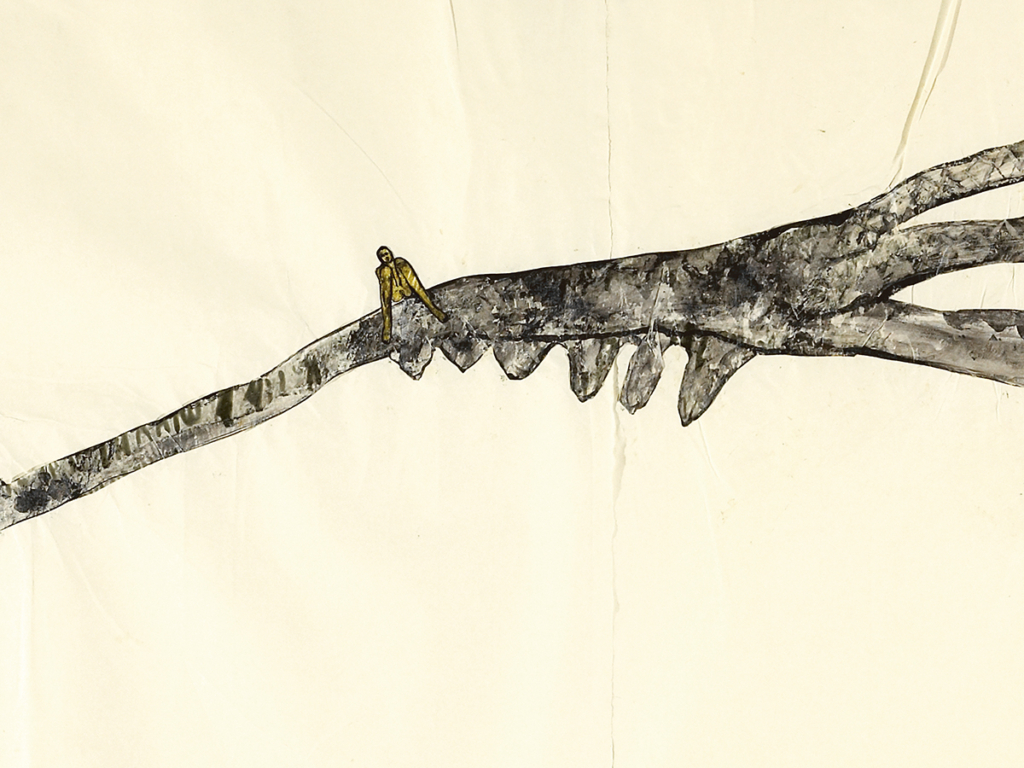Torture of Women
Nancy Spero
Edited by Lisa Pearson with writings by Diana Nemiroff, Elaine Scarry and Luisa Valenzuela

hardcover, 7.75 × 10.5 in.
156 pages, all color
978-0-9799562-2-5
published in 2010
Torture of Women is Nancy Spero’s fierce and enduring contribution to contemporary art, to feminist thought and action, and to the continuing protest against torture, injustice, and the abuse of power.
This epic 125-foot-long collage, two years in the making, weaves ancient and modern stories of oppression and resistance by juxtaposing mythological imagery with written first person accounts by victims of torture, news reportage of missing women, and definitions of torture from the 13th and 20th centuries. Artistic ingenuity coupled with boldly feminist and political intent, Torture of Women is a public cry of outrage and a nuanced exploration of the continuum of violence and the isolation of pain. It is an ever radical, groundbreaking work of honesty, complexity, and beauty.
Siglio’s publication, three years in the making, translates the work into nearly 100 pages of detail so that the entirety of Torture of Women—with legible texts and vibrant color reproductions—can be experienced with immediacy and intimacy, providing a unique opportunity to engage this influential but infrequently exhibited work of art. Siglio’s publication was conceived not to simply document Torture of Women but to create a space for the reader to engage in multiple acts of reading of it—as an innovative and polyphonous narrative, as a feminist disquisition, as a register of political protest and outrage, and as an extraordinary work of art.
The book includes a selection of quotes by Spero as well an essay by Diana Nemiroff; “Symmetries,” a story by Luisa Valenzuela; and an excerpt from The Body in Pain: The Making and Unmaking of the World by Elaine Scarry.
read
an excerpt of “Fourteen Meditations on Torture of Women by Nancy Spero” by Diana Nemiroff from the book, an interview with Torture of Women‘s book designer at BOMB, and an excerpt from the 1998 essay “Tongue, Torture and Free Rein” by Catherine de Zegher.
about the artist
Nancy Spero (1926–2009, born in Cleveland, Ohio) is regarded as a pioneer in feminist art whose work confronts social and political injustice with creative ingenuity. Her work has received considerable international acclaim with more than a dozen solo museum exhibitions around the world, including the ICA in London, de Appel in Amsterdam, Malmö Kunsthalle in Sweden, the New Museum in New York, and MOCA in Los Angeles as well as a limited retrospective in 2010 at Centre Georges Pompidou in Paris. In 2008 the Museo d’Art Contemporani de Barcelona organized a retrospective that traveled to two other museums in Spain. Her work has also been included in exhibitions including, most recently, WACK: Art and the Feminist Revolution, elles@centrepompidou , the Whitney Biennial 2006, and Think with the Senses — Feel with the Mind: Art in the Present Tense at the 52nd Venice Biennale. Among her many commissions is the popular “Artemis, Acrobats, Divas, and Dancers,” a permanent mosaic installed at the 66th Street/Lincoln Center subway station in New York City.
While her work is now widely recognized and respected, Spero worked in relative obscurity for almost twenty-five years, resisting the predominant art world trends and protesting inequality in the art world and beyond. Graduating from the School of the Art Institute of Chicago in 1949, she married artist Leon Golub a few years later. Together they moved to Paris where, in domestic isolation, she painted while raising her three young sons. Her dark and existential series, Black Paintings including her first use of text in works such as “Fuck You / Merde,” presaged the radical transformation of her art upon returning to the U.S. in 1964.
Horrified by the war in Vietnam, Spero painted the War Series (1966-70), using sexual imagery to shock the viewer into recognizing the relationships between sex and power, war and obscenity. Her outrage and anger was expressed in both art and action: she joined several activist groups including the Art Workers Coalition and Women Artists in Revolution (WAR) and also helped found the all-women’s cooperative gallery A.I.R. where she had her first solo New York show, Codex Artaud, in 1973. This work, while less overtly political, was more subversive in method, collaging non-illustrative imagery with the fractured, tortured texts of Antonin Artaud to create a complex indictment of the powers of oppression and an intimate portrait of pain. This early experiment developed into an innovative, wide-ranging, and enduring artistic practice that is unapologetically feminist, anarchic in spirit, and tenaciously political, a practice she continued well into her eighties. (Lisa Pearson, from Torture of Women)
see also
✼ the improbable:
from Issue, No. 1 (Time Indefinite), “Dick Higgins, Publisher: Notes Toward a Reassessment of the Something Else Press Within a Small Press History” by Matvei Yankelevich: “To find connections between poetry, small press publishing, and the art scene of the early 1960s, one may look no further than Higgins’ own network.”
[...]
